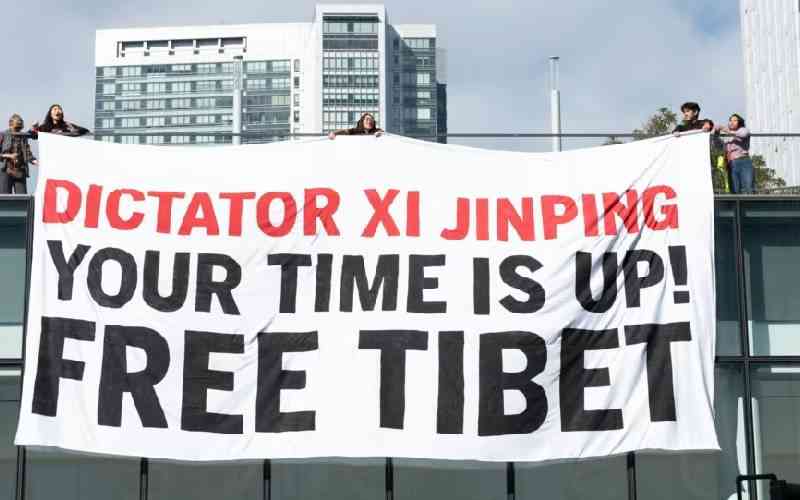×
The Standard e-Paper
Kenya’s Boldest Voice

Before Chinese President Xi Jinping's arrival in San Francisco on Wednesday for the APEC summit, protesters and pro-democracy activists voiced concerns about China and Xi that are rarely expressed in China or the region.
The summit is expected to bring U.S. President Joe Biden and Xi together for their first face-to-face meeting since they spoke on the sidelines of the G20 summit meeting in Bali, Indonesia, in November 2022.